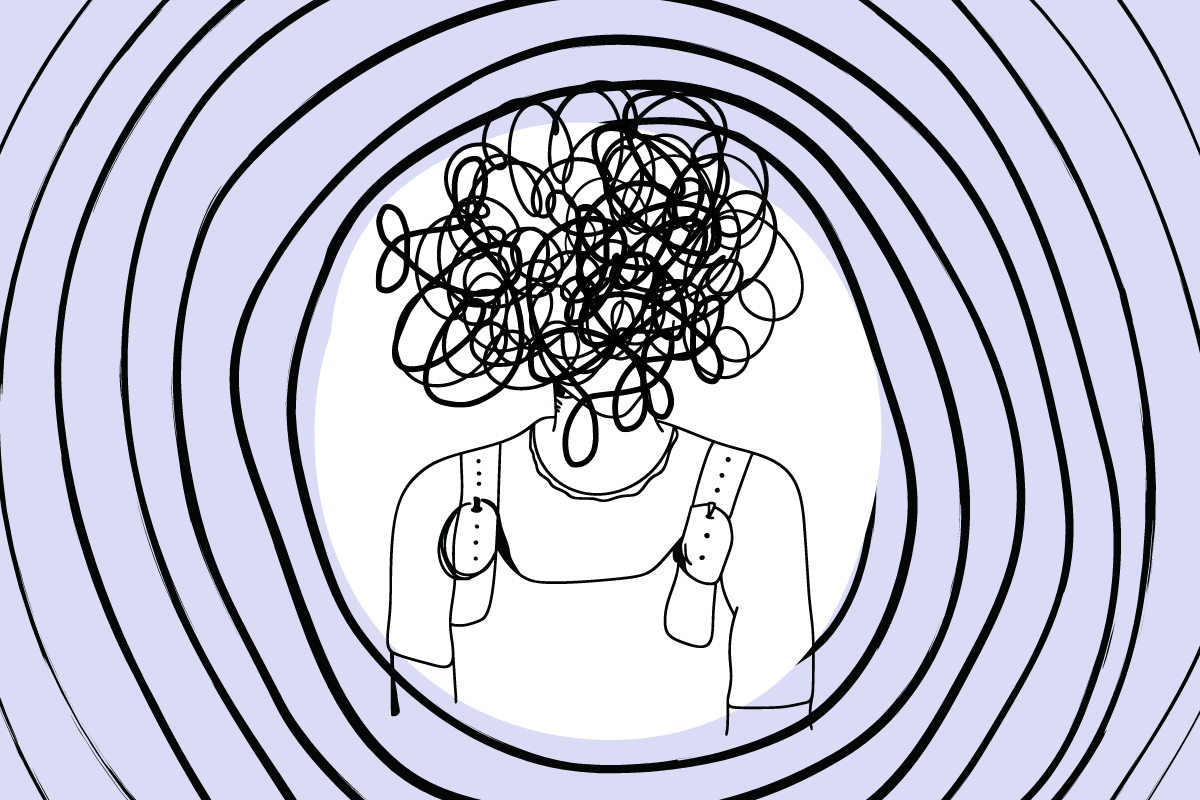We all have things that help us feel grounded when we’re stressed: a favorite candle, a comfort TV show or a call from a loved one. For me, that thing is the Jewish value of pikuach nefesh.
Pikuach nefesh is a beautiful (and criminally underrated) mitzvah that says that saving a life is always a priority — even if it means disobeying other commandments. It is what allows us to break Shabbat to call an ambulance or move debris if someone is trapped under it. As explained by Rabbi Menachem Meiri, even though it may sound like it, pikuach nefesh is not a loophole, but rather a reinforcement of the value of life.
I first learned about this concept while researching Hebrew names for my high school youth group, which is now named Nefesh (most commonly translated as soul). In my attempt to fully understand what “nefesh” meant, I did hours of research, and the infinite Internet rabbit hole led me to pikuach nefesh.
At the time, it stuck with me because I was surprised I hadn’t heard of it before. I remember as a child always wondering “what if” when it came to religion. “What if something happens during Shabbat? What if someone can’t fast?” Until then, I had never been given a real answer.
I then mostly forgot about pikuach nefesh until a particularly tough week during my sophomore year of college. I had three exams, two presentations and what felt like a thousand meetings — and of course, that was the week I experienced a medical issue and ended up having to do an overnight ER visit.
After coming home from the hospital at 5 a.m. and waking up a short four hours later, I was getting ready to go to class. I could feel the lack of rest affecting me, and the thought of leaving my bed was nothing short of daunting. I knew my absence would be excused, but resuming my daily routine felt easier than breaking it by sending an email. I was fully on autopilot, going about the motions of my day without actually thinking about what the best course of action was.
Suddenly, the concept of pikuach nefesh returned to me and felt all too relevant — even personal. I took a couple of deep breaths, called my therapist and decided that I was not going to class. Sending an email took two minutes, and it got me out of my two-hour lecture.
As a very type-A and rule-following person, this is not the last time I’ve run into situations like this. Pikuach nefesh reminds me to reevaluate the rules in my life and make sure I am taking care of myself — it reminds me that life supersedes obligation.
Most of the time, I set these rules and obligations for myself. I was the one who chose to be involved in multiple organizations around campus, from Hillel to student government to a student-run public relations agency. I was the one who decided that I needed to get an A in every single class. When life gets hectic, it becomes almost impossible to remember that I do not really have to do any of these things. As I run across campus holding my sandwich, swerving bikes and pedestrians, it is hard to recognize that I put myself in this position by creating these obligations for myself — that this is a choice. That’s when I take a step back and think of pikuach nefesh.
I’ll admit that my approach to pikuach nefesh takes some creative liberties. In this scenario, my life is not on the line, and I am (hopefully) not going to die because of lack of sleep or high stress levels. But the quality of my life does come into play here. My life is not just about being alive, but also about enjoying the life I am living. Also, my approach to pikuach nefesh defines commandments as absolutely anything you feel like you have to do — whether significant or trivial. It is also good to keep in mind that our personal commandments, even though they might feel like it at times, are not the holiest of laws.
In the Talmud, it says that you shall live by God’s commandments, not die by them. And it is the same for our personal lives. One should feel empowered to live by their own rules, not imprisoned by them.
Therefore, my interpretation of pikuach nefesh calls for not just choosing life but choosing the life you want to live. It calls for making decisions that will empower you and not restrict you — for pausing to think about which commandments are adding to your life and which are keeping you from living it and enjoying it to its full extent.



